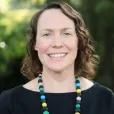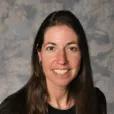Morocco
Learn more about Morocco, one of the destinations for U.S. educators through the Fulbright Distinguished Awards in Teaching Research Program.
3 to 6 months
Morocco
None
29.565096041059, -9.404296875
Placement Information
- Partner Organization: Moroccan-American Commission for Educational & Cultural Exchange (MACECE)
- Eligible Program Dates: 3 – 6 months between September 2026 – March 2027, starting in Fall 2026
- Host Institution Expectations: MACECE has many university partners. MACECE recommends that Fulbright participants be placed in Rabat or Casablanca to remain close to the Commission, but other partners may be considered depending on the participant’s research topic and preferences.
- Language requirement: Some knowledge of Arabic, French, Spanish, Moroccan Darija, or Tamazight is desirable but not mandatory.
- Monthly Allowance: Between $3,800 - $4,100 (exact amount to be confirmed at a later date).
- Dependent Information: An allowance of $2,000 per eligible dependent will be provided as part of the Fulbright grant. Enrolling foreign children in a Moroccan public school can be complicated as it demands a lot of paperwork and permissions and can take a considerable amount of time. Non-residents often enroll their children in private institutions where registration can be more easily facilitated. The monthly fees vary widely depending on the institution and the level of education. On average, you might expect fees to range as follows:
- French schools are approximately $300 - $600 per month.
- Monthly tuition fees of Moroccan private schools are approximately $150 - $300 per month. (Please note that the primary language of instruction would be Arabic, French, and English as second language.)
- Tuition fees for the Rabat American School are approximately $15,000 to $29,000 per year and for the Casablanca American School the tuition fees are between $14,000-$17,000.
- Some Fulbright participants also consider Dar Essalam American School in Rabat, Khalil Ghibran School in Rabat, and the George Washington Academy in Casablanca.
- Please note that tuition support for dependents is subject to availability and requests for funding are reviewed on a case-by-case basis. Applicants are strongly encouraged to research schooling options for their dependents during the application phase.
Country Overview
Information about Moroccan history, its political system, culture and tourism, and economy can be found at the links below:
Educational System Overview
The Moroccan educational system is structured into four levels:
- Preschool Education: optional, but encouraged for children aged 4 to 6; not yet fully integrated into the formal education system; provided by both private and public institutions.
- Primary Education: mandatory for children aged 6 to 15; cycle lasts for six years and covers a broad range of subjects (history, geography, literature, mathematics, physics, arts, physical education, information systems, etc.).
- Secondary Education: divided into two cycles, which are lower secondary and upper secondary. Lower secondary lasts three years and upper secondary takes another three years and includes both general education and specialized streams such as humanities, sciences, and technical and vocational training. Students take the Baccalaureate exam which determines eligibility for higher education at end of upper secondary.
- Higher Education: offered in public and private universities, higher education institutions and specialized schools.
- Additional Resources
Possible Topics of Interest for U.S. Educators
The Ministry of National Education has been working towards the integration of STEM (Science, Technology, Engineering and Mathematics) in the development of secondary school students’ skills. The first STEM education school in Morocco opened in the academic year 2022-2023. Learning soft skills or power skills is also very crucial and these topics have started to become integrated into Moroccan curricula. The development of teaching materials and teaching curricula as well as innovative methods of teaching English in Morocco can also be possible project areas. Virtual exchange programs between teachers as well as students might be of interest to both sides.
Culture is an important component of ELT in Morocco. Creating opportunities for American and Moroccan teachers to develop materials and virtual exchange programs on cultural issues/comparisons might be interesting to both sides (teachers and students alike). Language diversity in Morocco is a useful area where US educators might be interested in exploring further.
Other topics of interest could be:
- Environmental education
- Human rights and civic education
- Peacebuilding and conflict resolution
- Artificial intelligence and cybersecurity
- Women’s empowerment
- Culture and identity
- Cultural heritage preservation
- Media literacy
- Science, technology, and innovation



